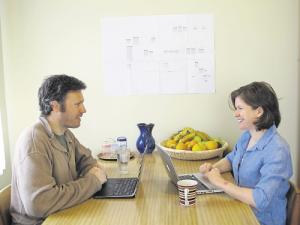On 10 September, the Centre for Alternative Technology near Machynlleth hosted the EF Schumacher-inspired ‘Small is Beautiful’ festival with an exciting mix of debates, workshops, arts and talks (spanning hydroelectricity, pee power, zero-carbon Britain, aquaponics, campaign-building, thatching, tiny homes, improvising…) with debates captured in visual minutes by Creative Connection.
Practical Action’s Paul Smith…






